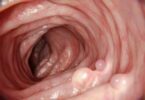The WHO renames monkeypox as Mpox, a contagious and potentially fatal infection.
The WHO (World Health Organization) declared that the outbreak of the new Mpox variant (monkeypox) affects several African countries.
For this reason, a continental public health emergency of great importance and with the possibility of spreading is issued.
The decision was taken unanimously by a WHO Emergency Committee due to concern that a more deadly and transmissible strain of the virus has reached African regions that were previously unaffected.
According to information provided by the WHO, this disease has affected more than 15 thousand people in these countries.
In fact, the Democratic Republic of the Congo currently shows an increase in infections and hundreds of deaths.
The most affected by this Mpox outbreak are women, children and homosexuals.
Monkeypox (Mpox) is an infection transmitted from animals to people by the smallpox virus.
Monkeypox is spread through direct contact with bodily fluids or sores on the body of someone who has monkeypox.
It is also spread through direct contact with materials that have been in contact with bodily fluids or sores, such as clothing or bedsheets.It can also spread through respiratory secretions when people have close face-to-face contact.
It is not confirmed that it remains in the air and is transmitted that way, according to officials at the US Centers for Disease Control and Prevention (CDC).
Monkeypox is rare and its symptoms are similar to common smallpox, but at a lower intensity and less contagious than Covid-19 or influenza.
Monkeypox symptoms usually begin within 3 weeks of exposure to the virus and can resemble the flu. That’s why it can include fever, headache, muscle and back aches, sore throat, cough, swollen lymph nodes, chills, or exhaustion.
If someone has flu-like symptoms, they will usually develop a rash one to four days after being infected. So, the rash will go through several stages and can be located on or near the genitals or anus, but it could also be in other areas such as the hands, feet, chest, or face.
The rash can also be inside the body, including the mouth, vagina, or anus.
Consequently, there are already vaccines available to deal with this virus, although that does not mean that they are widely available worldwide, which in fact there is not according to the WHO.









